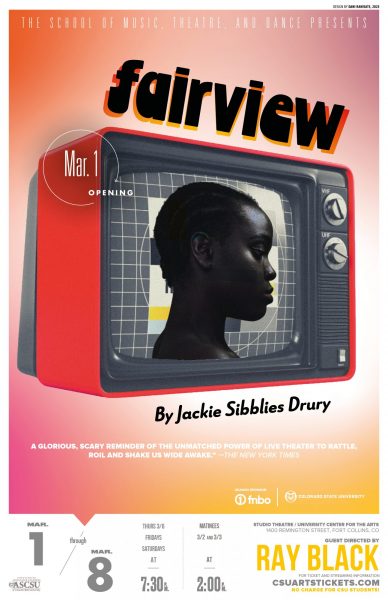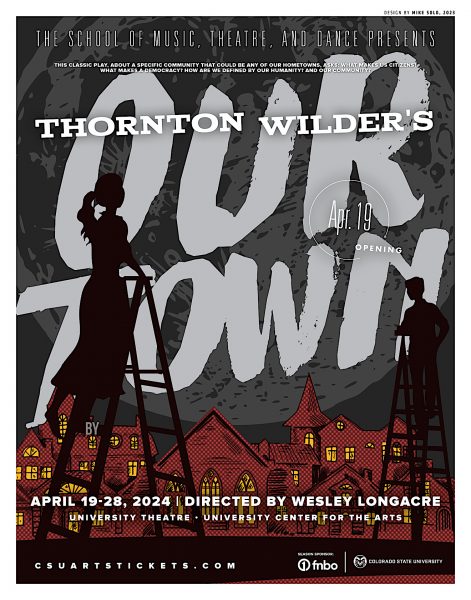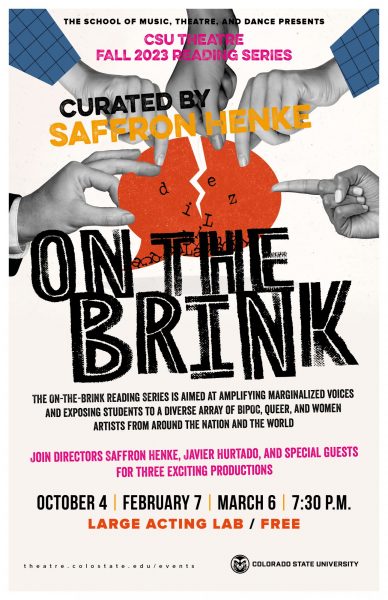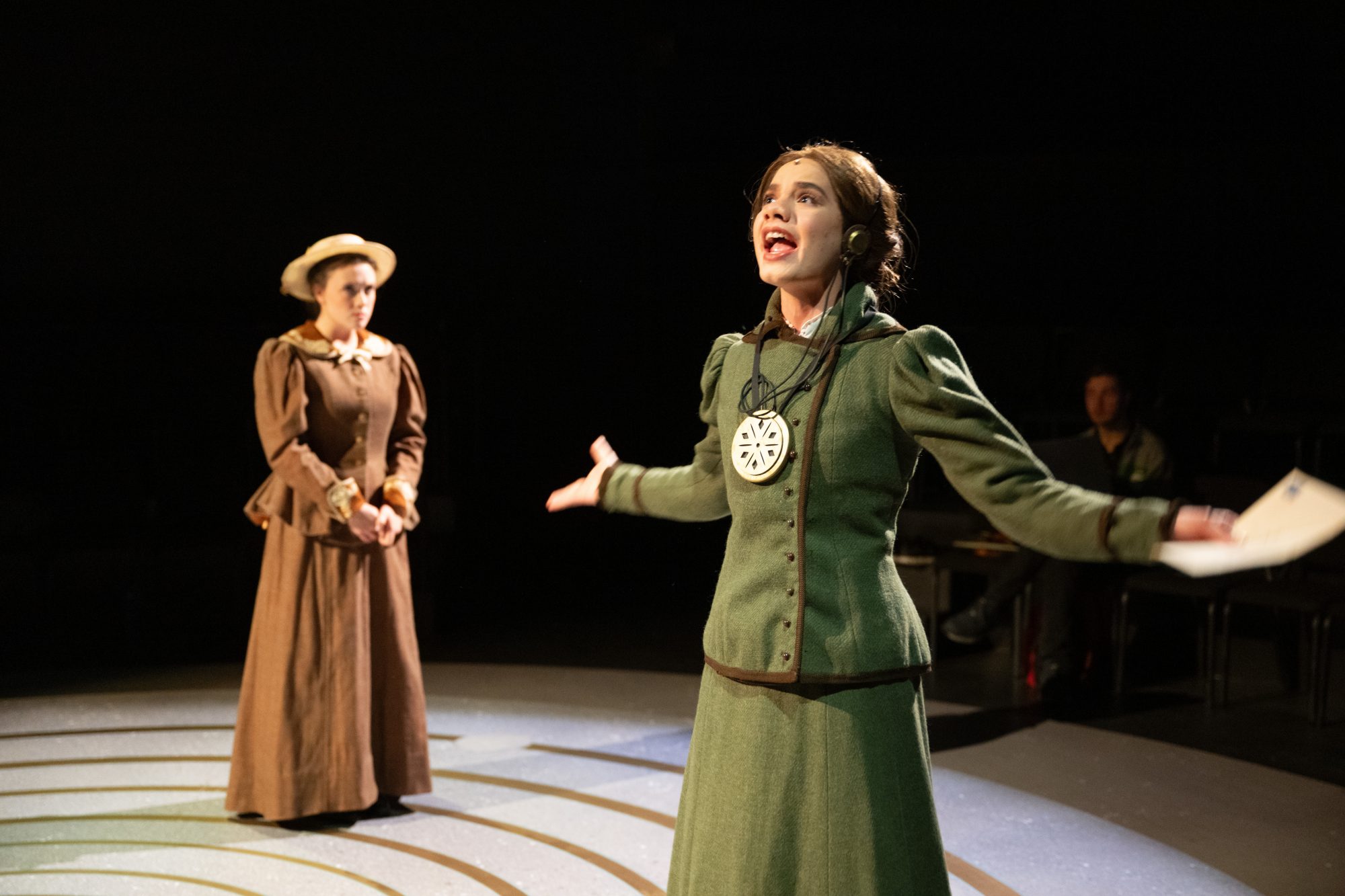
Photo: Students performing in Silent Sky by Lauren Gunderson
"Theatre is the essential artform of democracy” writes Oskar Eustis, professor of dramatic writing and arts and public policy at New York University and artistic director at the Public Theatre in New York City since 2005. “Truth comes from the collision of different ideas and the emotional muscles of empathy are the necessary tools of democratic citizenship,” Eustis argued in his 2018 TED Talk.
The origins of the word democracy come from the Ancient Greek ‘demos’ (people) and ‘kratos’ (power). Out of the same culture came the artform of Western theatre, and from the Greek word theatron, or viewing place, came its title. Theatre represents the very exercise of the democratic muscle to which Eustis refers; it is a place where we can look at, examine, and witness our culture.
From the season selection process to opening night, Colorado State University students and faculty are bringing the voice of democracy to the stage as part of the CSU’s campus-wide theme of democracy and civic engagement.
Democracy and CSU Theatre
The CSU Theatre season selection process is inherently democratic, encouraging faculty, students, and staff to advocate for work they wish to see on our stages. An artistic season should unite performers, directors, designers, managers, writers, educators, and promoters through a creative vision, and the process is ultimately about trusting diverse voices to bring their expertise and advice for the common good. In this way, the season planning process not only builds community and ensures diverse representation, but it also exercises the democratic muscle by example.
Artistic Director Dr. Megan Lewis led the committee in creating the 2023-24 season around the campus theme, asking: What does democracy mean to theatre artists?
"We came up with four rubrics around which we programmed works,” said Lewis.
Building Community
Theatre, an inherently collaborative artform, is all about building communities – within our rehearsal rooms, on our stages, and with our audiences. Through storytelling, we invite conversation about what defines us as individuals…and as a society.
Fighting Injustice
Artists hold mirrors to culture, asking vital questions about what we want our world to be. We tell stories that ask us to look at ourselves with new eyes, open spaces in which to see one another, and invent, imagine, and invite new possibilities together.
Diverse Representation
At CSU Theatre, we believe that diversity makes a democracy. Who is represented, and how, matters if we are to forge a more inclusive, welcoming, and equitable world.
Laughing at our Foibles
As we tackle life’s heavy, difficult subjects, we also believe that being able to laugh at ourselves is vital to humanity’s well-being. At the center of theatre is a spirit of play – playing with words, with ideas, and with each other. And change is only possible when we let go of old vocabularies and invent new ones.
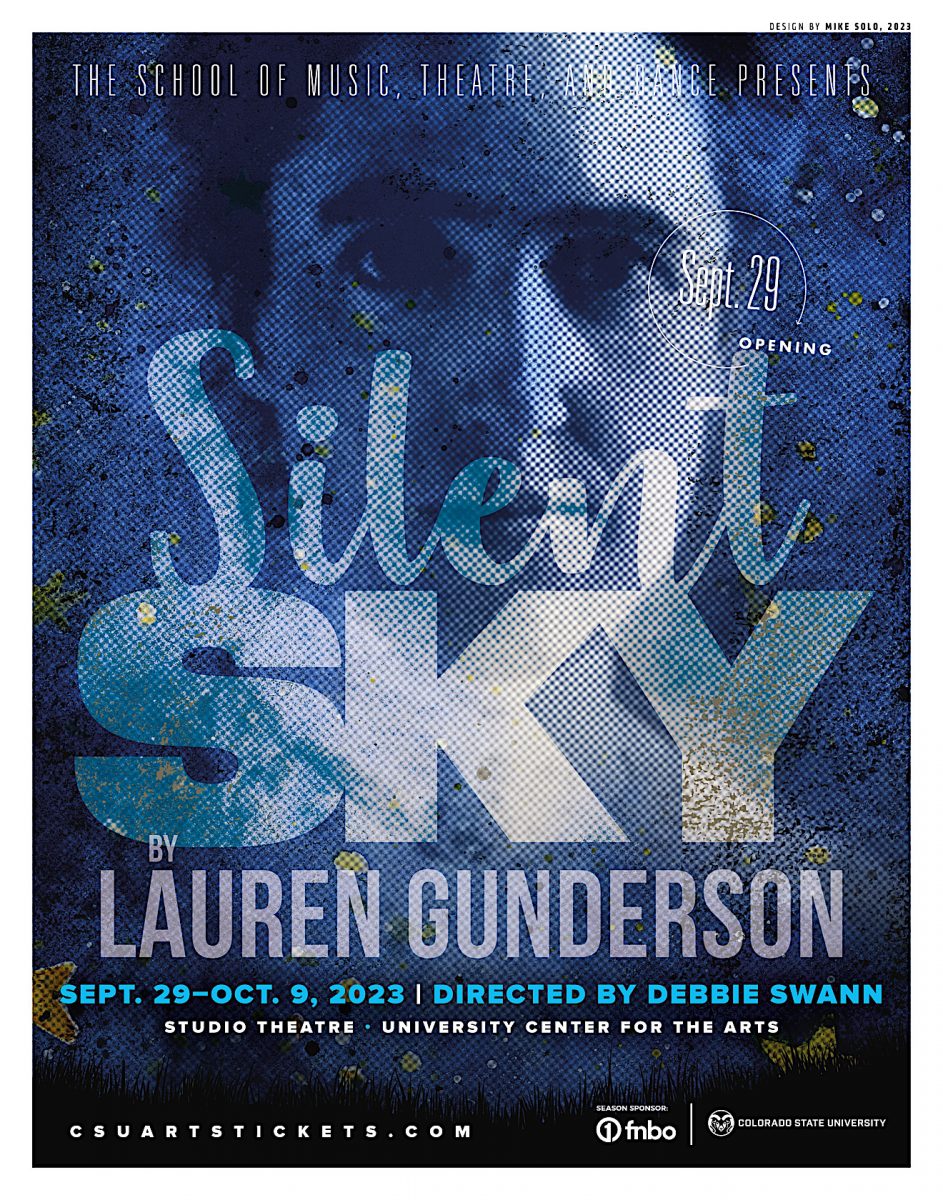
Shows of the Season
Silent Sky, by Lauren Gunderson, kicked off the 2023-2024 season with sold-out shows examining the story of a “whip-smart, headstrong pioneer at the dawn of modern astronomy, Henrietta Leavitt.” If citizen participation is a primary principle of democracy, this play asks: Who gets to have a voice? While women were not yet full participants in our democracy during the time the play is set (early 1900s), the play “demands a place at the table for the forgotten women of science.”
Representation, the ability to see or hear oneself echoed in the participating body of representatives, is sometimes the first step in fighting injustice and encouraging engagement. The contributions of women to our republic began long before their ability to fully participate in their own representation.
As is the case with many of the productions at the University Center for the Arts, CSU Theatre expanded its academic explorations with community engagement. A panel discussion curated by student dramaturg Lori Vildibil was held after the Oct. 1 matinee of Silent Sky. Four Summit County friends, who read the play for their bi-monthly play group, were in attendance.
Mary Parrott, one of the Summit County attendees, reflected on the theme of “holding a mirror up to culture.” Parrott said, “I think Gunderson and the actors in the performance of Silent Sky did a noble job of representing the real scientist Henrietta Leavitt and her uphill battle and perseverance, to make the foundational contributions to astronomy that she did. She kept working at it without coming to work with a Molotov cocktail under her long skirt, ready to throw at her ‘superiors,’ even though one suspects she felt like it at times! So, this was the way, at that period of time, for a woman scientist to survive.”
Fellow Summit County attendee, Joni Bauer, brought the focus back to present concerns. Bauer said, “Sadly, our democracy is hanging by a thread, so this is the time to engage, or we will have no one to blame but ourselves when democracy is a thing of the past…”
CSU Theatre presents Silent Sky by Lauren Gunderson and directed by Debbie Swann.
In November, the department’s annual musical elicited communal chuckles as desired by the themed rubric. The 25th Annual Putnam County Spelling Bee by Rachel Sheinkin and William Finn (directed by Prof. Noah Racey) follows an eclectic cohort of six pubescents as they vie for a spelling championship. The production encouraged audience participation in the “light-hearted musical,” while members laughed “at the foibles of the jamboree of idiosyncratic nerds building their own quirky community.” The conversation continued, breaking the fourth wall between the audience and the performer to expand on the idea of community.
CSU Theatre presents The 25th Annual Putnam County Spelling Bee by Rachel Sheinkin & William Finn and directed by Noah Racey.
This spring, CSU Theatre continues its examination and engagement of the democratic theme with two more productions and the ON THE BRINK reading series.
Spring 2024 opens with Fairview by Jackie Sibblies Drury, “a candid examination of race in contemporary American society,” timed to extend the conversation of Black History Month. Guest-directed by Dr. Ray Black, CSU associate professor of ethnic studies who focuses on African American studies, the play showcases diverse representation, builds community across CSU departments, and creates spaces on our campus to tackle the crucial topic of racism in our culture.
The final production of the season, directed by Dr. Wesley Longacre, is the Pulitzer Prize-winning American classic, Our Town by Thornton Wilder, which “offers up a microcosm of the human life cycle for our reflection.” Set in a fictional American small town between 1901 and 1913 (before women and people of color were allowed full participation in our democracy) this play sums up the year’s theme of civic engagement with pointed questions: What makes us citizens? What makes a democracy? How are we defined by our humanity? And our community?
Politics and Entertainment
In addition to the season of full productions, CSU Theatre produces ON THE BRINK. The ongoing reading series is aimed at amplifying marginalized voices and exposing students to an array of BIPOC, queer, and women artists from around the world.
Fairview by Jackie Sibblies Drury
Guest Directed by Dr. Ray Black
Evening (7:30 p.m.) -- March 1, 2, 6, 7, & 8
Matinee (2 p.m.) -- March 2 & 3
Studio Theatre
Our Town by Thornton Wilder
Directed by Wesley Longacre
Evening (7:30 p.m.) -- April 19, 20, 25, 26, & 27
Matinee (2 p.m.) -- April 21 & 28
University Theatre
ON THE BRINK Reading Series
February 7, March 6
7:30 p.m.
Large Acting Lab
The first ON THE BRINK reading of the 2023-2024 season, Oct. 4, was Crumbs from the Table of Joy by a female playwright, Lynn Nottage. Javier Hurtado, assistant professor of playwriting and directing and Crumbs director, noted the reading was packed with a multigenerational audience of students, faculty, and staff from across campus. “Audience members who attended the reading with prior knowledge of the tumultuous racial landscape of America in the 1950s were offered a reminder of this time and the significance it holds for our contemporary time,” Hurtado said.
“Some audience members came to support their friends and classmates but had limited knowledge of the racial dynamics in the U.S. at that time. Those students left with an immersive history lesson that allowed them to make connections to the lived experiences of Black Americans.”
“The production entertained and educated simultaneously. That’s the power of the performing arts!”
Lewis echoed his endorsement of the democratic nature of this artform. “Theatre is a space in which we rehearse the way we want to be in the world. We bring our diverse selves into a room, create a community as artists, and then extend that community to the audiences who come to see our stories play out on stage. It’s a space of radical (re)imagining, creative soil in which we plant possibilities for a more just, equitable, and human planet.”

